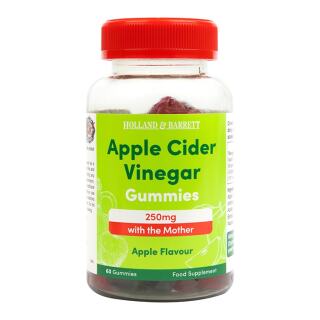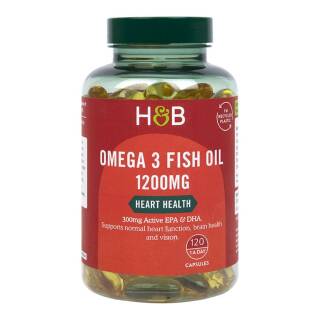Are you aware of Irritable Bowel Syndrome?
Since April is an awareness month for Irritable Bowel Syndrome, we took the opportunity to discuss this with you. Irritable Bowel Syndrome (IBS) is a functional bowel disorder, with the majority of sufferers, being women.
It affects approximately 12% of the world's population and presents an extensive range of symptoms, of which the most predominant are:
- Abdominal pain & discomfort
- Intestinal bloating
- Increased visceral sensitivity
The annoying feeling that "I understand what's going on in my stomach"
Or "I am constantly aware of my bowel movements".
- Flatulence
- Constipation
- Diarrhoea
..while its main feature is recurrent abdominal pain, which is associated with changes in the frequency and consistency of stools and/or regression with emptying. Its diagnosis by a specialist gastroenterologist is made after excluding other pathological conditions with similar symptoms, such as celiac disease and inflammatory bowel disease (IBD).
Irritable Βowel Syndrome: Causes of Occurrence
The etiology of the onset of IBS is not fully understood, as it appears to come from a variety of reasons. Eating habits, acute gastroenteritis and severe stress seem to be among the list of possible causes. The modern rhythm of life plays a vital role in the exacerbation of symptoms, as it seems that the gut-brain axis communication plays a major role. The increase in the incidence of IBS is a further proof that our mental and physical well-being are constantly interconnected.
Irritable Bowel: Diet & Symptom Management
To date, there is no way to radically combat the syndrome. Due to periods of exacerbation and remission, patients with IBS tend to become socially isolated and experience difficulties in their work and personal lives. For this reason, symptom management and reduction of flare-ups, is imperative for people with IBS, in order to improve their quality of life.
Because each person with IBS experiences different symptoms and with different intensity, individualised management of the syndrome is key to improving their quality of life. However, there are some general practical guidelines that seem to help reduce the intensity of IBS symptoms.
- Stress. Stress management is crucial for the reduction of exacerbations of IBS, as previously mentioned, there is constant communication between the gut and the brain.
- Exercise. Exercise contributes significantly to stress regulation, as well as increasing bowel motility (particularly helpful for IBS, accompanied by constipation).
- Diet. Regarding eating habits, there are many dietary practices that a person with IBS needs to be aware of, and they can contribute significantly to the management of flare-ups.
Small and frequent meals. Large meals have been associated with an increase in symptom intensity, increasing abdominal discomfort and making digestion more difficult.
Limiting intake of FODMAPs. Increased symptom intensity of IBS has been linked to increased intake of certain food components, which we encompass with the term FODMAPs. In fact, it is a group of fermentable carbohydrates (lactose, fructans, polyols, etc.), which we find mainly in legumes, dairy products, certain fruits & vegetables.
Low FODMAP diets are always carried out, under the supervision of a nutritionist.
Eating with no rush. Anyone who eats with anxiety and does not enjoy their food should raise their hand. Probably a lot of us, huh? Rushing to eat and not devoting 15-20 minutes to our meal, without distractions, has been linked to difficulties in digesting and swallowing air (along with food), which can further intensify abdominal discomfort, in people with IBS.
Psyllium Supplementation. Psyllium supplementation may help people with IBS and constipation and relieve the severe discomfort caused by it. Do not forget to drink plenty of water, as dehydration can cause the opposite effects.
Peppermint oil Supplementation. Peppermint oil has been investigated in a large number of studies, showing high efficacy in reducing intestinal bloating due to its antispasmodic action.
Supplementation with probiotics. We've talked about probiotics and their valuable benefits before in a previous article, right? As a reminder, these are supplements enriched with bacterial strains that aim to balance our gut microbiome. People with IBS, due to reduced fibre consumption or other underlying pathological condition, may experience changes in their gut microflora (i.e. the amount of good & bad bacteria they have), which can increase the severity of their IBS symptoms. Recent systematic reviews demonstrate that probiotic supplementation in people with IBS is a safe and effective option for managing IBS symptoms, reducing abdominal pain and generalised gastrointestinal distress, which is a barrier to optimal quality of life. In addition, it appears that supplementation with probiotics may enhance the immune response in people with IBS and may also help reduce symptoms of depression.
The best probiotics for the gut: Ways to choose the right supplement
As mentioned, although there have been numerous studies demonstrating probiotic supplements as a safe and beneficial option for IBS, there are still no guidelines on which probiotic supplement to choose depending on the severity of symptoms. Below, there is a general rule of thumb that you can use to identify the probiotic supplement that will work effectively, in your individualized case.
General rule of thumb
We should always start with a probiotic supplement, which provides a small number of bacteria (e.g. 1-3 billion) & a small number of families (strains), especially if our diet is not balanced. To conclude, whether it is effective or not, we need to consume it, for at least 8 weeks from the start of the administration. If the supplement is not effective at 8-10 weeks, we can increase the amount of bacterial strains and/or the number of families and continue in the same way until we find the one that suits us best. If we find that the symptoms are getting worse, we discontinue administration until the flare-up subsides. In this case, we should either try different families of probiotics or modify the amount.
Extra tip: Probiotic supplements should not be taken with very hot food, as high temperatures kill bacterial strains.
Disclaimer: The above instructions are not intended to substitute the instructions of your GP.
Irritable Bowel Syndrome is a functional disorder that affects a large portion of the population, especially women. It is characterized by a variety of gastrointestinal symptoms, which affect the quality of life of patients. The management of severe anxiety, as well as personalised nutritional guidance, are imperative practices that contribute to IBS management. Probiotic supplementation appears to benefit a large proportion of patients with IBS, which should be used consistently, and always under the supervision of your GP and your dietitian.
Scientific References
ELIGAST, Hellenic Centre of Gastroenterology & Nutrition.
Dale, H. F., Rasmussen, S. H., Asiller, Ö. Ö., & Lied, G. A. (2019). Probiotics in irritable bowel syndrome: an up-to-date systematic review. Nutrients, 11(9), 2048.
Didari, T., Mozaffari, S., Nikfar, S., & Abdollahi, M. (2015). Effectiveness of probiotics in irritable bowel syndrome: Updated systematic review with meta-analysis. World journal of gastroenterology: WJG, 21(10), 3072.
Dimidi, E., & Whelan, K. (2020). Food supplements and diet as treatment options in irritable bowel syndrome. Neurogastroenterology & Motility, 32(8), e13951.
















